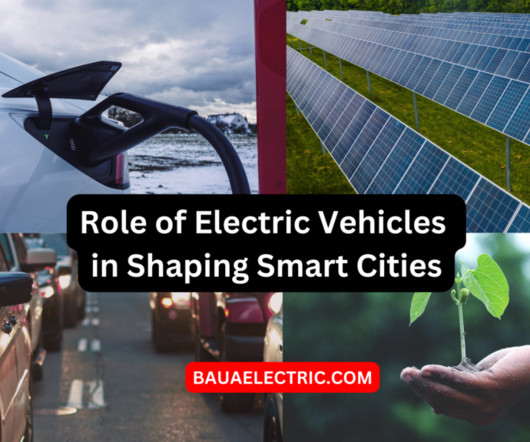Must Read 40+ Electric Vehicle Interview Questions & Answers
Get Electric Vehicle
JUNE 7, 2023
Here are some of the key advantages of electric vehicles: Environmental Benefits: EVs produce zero tailpipe emissions, meaning they do not release pollutants like carbon dioxide (CO2), nitrogen oxides (NOx), particulate matter, and other harmful gases into the atmosphere. Energy Efficiency: EVs are more energy-efficient than ICE vehicles.











Let's personalize your content